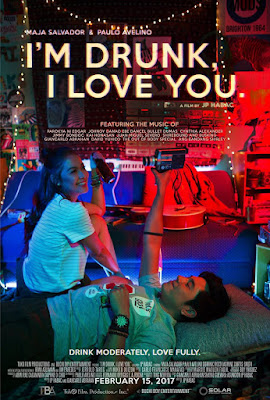LIBERACION (Adolf Alix, Jr.)
In filmmaker Adolf Alix Jr's oeuvre, there are slow films, and then there are really slow films. LIBERACION belongs to the latter, in the tradition of his earlier film AURORA, starring Rosanna Roces.
The thing that fascinates me in terms of Alix's visual style is that either in color or black and white, he gracefully presents his elements onscreen, and there is this unwritten, indescribable visual signature that tells you it is Alix's brainchild. For instance, he favors those long takes of his opening scene to establish either the character, the environment, or the scenario. In LIBERACION, we see a couple of Japanese soldiers tunnel out of a dark cave; since Alix follows an ultrarealist or realist approach to most of his films (if not all), we see what the soldiers see. The screen is dimly-lit, therefore if the soldiers are having a hard time visualizing their exit, then so must we.
I held back this review until I've seen Apichatpong Weerasethakul's UNCLE BOONMEE WHO CAN RECALL HIS PAST LIVES. The cave scene mentioned above in LIBERACION got me this inkling that maybe it was inspired by UNCLE BOONMEE which also has a cave scene (from the trailer). Maybe Alix was inspired. Maybe he wasn't. As far as I'm concerned the two films have distinct qualities although I cannot shake the possibility of comparison since LIBERACION also contains elements of the unknown (spirits, etc.).
Going back to the film, we learn that the setting is during the Japanese surrender in the Philippines, and that there are these Japanese soldiers who doesn't know, or rather doesn't believe that the war is over. Makoto (Jacky Woo) is one of them. In order to amuse themselves and help keep time pass, the soldiers exchange stories of home, engage in sumo wrestling, and whatnot. But the inevitable paranoia seeps in, especially that they are disconnected from the outside world.
Admirable is the honor and determination of the Japanese as showcased in this movie. Jacky Woo is effective as a soldier who questions himself and his duty. I have never seen any film made by Woo in the past, but this should be his defining one.
Alix refrains from siding with the Japanese nor criticizing them for their actions; in LIBERACION, he presented the story of the Japanese from the point of view of a human being, and not as a pro or anti anything.
The inclusion of Mercedes Cabral in the story is captivating. For Makoto and the viewers, Cabral is a visual relief from all the solitude and pondering. There is a brief segment in the middle narrating a tale of a forest nymph. While somewhat out of the blue and bizarre, the segment adds color and further relief. Memories of AURORA comes into mind, which felt like a torturous journey despite the visual beauty.
Time presses on and we soon learn that Makoto has been there for decades (the presence of cops wearing that dreadful khaki uniform helped gave it away); Makoto's struggle is finally drawing to a close, but will he make it out of this exodus alive?
My friends and I were debating how the film would end. None of us guessed correctly.
For me, LIBERACION is a film that offers a fresh perspective of the Japanese occupation, prompting us to reexamine our history, and reevaluate our values. LIBERACION deserves a second viewing, just so the elements can be further observed and synthesized. Until now I still do not fully understand the papers from the helicopters. Maybe I should read more.
RATING: 4/5


regarding the the papers sa helicoper, pinapalipad ng mga Pilipino yung mga pictures and letters ng mga relatives ng mga japanese soldiers para bumaba na sila ng bundok saka para ma-miss na nila yung pamilya nila. Hindi kasi sila mahanap kasi nga nagtatago sila not knowing na tapos na ang giyera.
ReplyDeleteahhhh...
ReplyDelete